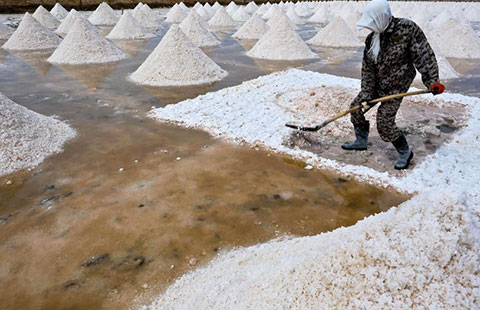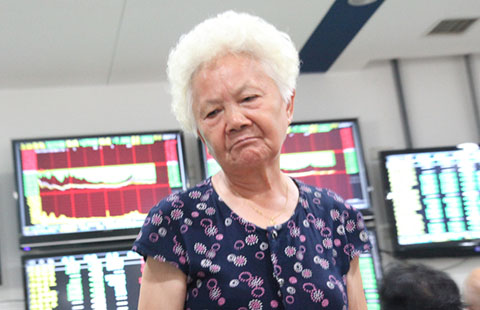China urges countries to increase trade openness
By Bao Chang (China Daily) Updated: 2012-06-21 11:03
China urged the world's major economies to increase trade openness in order to revive the global economy, as world leaders reached a consensus on further countering protectionism in a last-minute deal during the G20 Summit on Wednesday.
In the final communique of the summit, which was held in the Mexican resort city of Los Cabos, leaders pledged not to put up new trade barriers until late 2014, extending their previous pledge by a year, in a move to boost global growth.
At last year's summit, which was held in France, G20 members had vowed to oppose trade protectionism.
At this year's summit, Brazil, Argentina and South Africa resisted extending the trade pledge beyond its current termination date at the end of 2013, while other countries wanted to extend it to 2015, Reuters reported.
"Based on a common commitment against trade protectionism, countries, especially major economies, should open their markets, reduce high tariffs and enact fair competition to facilitate international trade," said He Weiwen, co-director of the China-US-EU Study Center of the China Association for International Trade.
In a speech delivered at the G20 Summit, President Hu Jintao called for a resolution to establish a free, open and fair global trade environment and opposed all kinds of protectionism.
"Efforts must be made to ensure open and inclusive bilateral and regional trade, and to safeguard the multi-lateral trade system," Hu said.
He said that G20 members should promote the steady recovery of the world economy, deepen reform of the international system, promote the healthy growth of international trade, promote development and advocate sustainable development.
"China has taken a series of concrete measures to increase trade openness and oppose trade protectionism, in terms of government purchases, imports increase and tariff reduction," He said.
In March, the State Council announced cuts on import duties on selected energy products and raw materials, as well as consumer goods, to boost purchases globally.
Vice-Premier Li Keqiang said earlier this month that China will import $10 trillion worth of goods and services in the five years ending 2015.
"Boosting imports is China's active effort on trade opening, which contributes a lot to anti-protectionism activities and is significant for the global economic recovery," said Huo Jianguo, director of the Chinese Academy of International Trade and Economic Cooperation under the Ministry of Commerce.
Last year, China's imports reached $1.74 trillion, accounting for 9 percent of global figures, according to the ministry. The amount is expected to grow about $100 billion annually.
China is currently the world's largest exporter and second-biggest importer, playing a crucial role in global trade.
But China has also been the biggest victim of international trade frictions for 17 consecutive years. In 2009, there were 116 trade remedy investigations into Chinese goods, accounting for 43 percent of the total global number. China has also seen repeated trade frictions regarding intellectual property rights.
According to He, the current economic recession also results in high unemployment in developed countries, and in trade frictions that affect trade openness and facilitation.
The European Union's plans to tax international airlines under its Emissions Trading Scheme represent the bloc's protectionist attitude, and could trigger disputes or even a trade war within the industry, He said.
"The EU is supposed to take a global and comprehensive measure to tackle the issue," He added.
Chen Deming, minister of commerce, said during the G20 Summit that trade protectionism is gaining ground, hindering the global economic recovery.
"Trade protectionism not only cannot boost the gloomy global economy, but also will hurt local economies. Major economies should be against trade protectionism to maintain an open and fair trade environment," Chen said.
baochang@chinadaily.com.cn
- Stocks close lower after central bank announces rate cuts
- China's fresh monetary moves to benefit its economy: Argentine experts
- Beijing Capital Agribusiness Group launches new Shuanghe rice processing line
- Paper magic in Shanghai 'Paper story town'
- China International Furniture Fair heads for Shanghai
- China anxiety an unwarranted global malaise
- Chrysler recalls vehicles over fuel pump flaws
- Chinese grads delay job search amid tough market

















